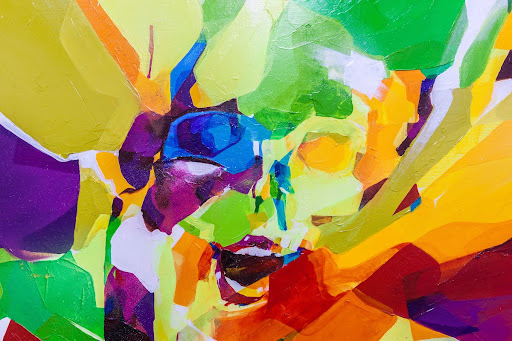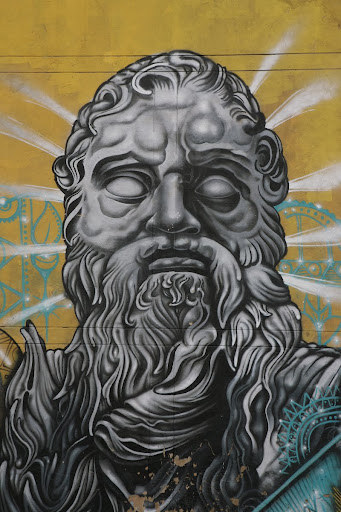
- Title: Sowat at Les Bains, Résidence d’artistes. Special project. Photo: Stéphane Bisseuil
- Creator: Sowat
- Date: 2013
- Location Stored: MoSA, 78, rue Amelot Paris 75011
- Location Created: Paris, France
Early Years and Artistic Evolution
Born in 1978 in Marseille, France, Sowat, an eminent figure in the world of graffiti, began his journey into the art world at the young age of 15. His initial foray involved tagging the railway tracks alongside a group of friends. This formative period introduced him to the art of graffiti, primarily focused on letters and styles to impress his companions.
Transition to Artistic Graffiti
After years of tagging the streets, highways, and walls of his hometown, Marseille, Sowat pivoted towards the more artistic aspects of graffiti in the early 2000s. He embarked on creating monumental works across different countries, such as Mexico, Brazil, and Argentina. This shift saw his evolution from street graffiti to exhibiting in galleries and institutions, exploring various techniques and styles.
Exploring Calligraphy and Beyond
Always seeking innovative ways to manipulate lettering, Sowat naturally gravitated towards calligraphy. He endeavored to adapt ancient calligraphic styles and techniques to the ruggedness of abandoned spaces and disused factories, where he preferred to express himself artistically.
Collaborative Endeavors and Significant Projects
Joining the DMV collective marked a new chapter for Sowat. Venturing into painting on canvases, his work sought to encapsulate the essence of street learnings—dripping tags, curved letters, among other innovative forms. His collaboration with LEK culminated in the “Mausolée” project, a monumental endeavor in a 40,000-square-meter abandoned supermarket. This initiative became a hub for about 40 artists, exploring and claiming the space for artistic expression for nearly a year.
A Legacy of Creative Exploration
Sowat’s artistic journey reached great heights, epitomized by the “Dans les entrailles du Palais” project at the Palais de Tokyo. This immersive initiative followed the “Mausolée,” exemplifying his commitment to exploring unconventional spaces and redefining the boundaries of graffiti art.
Conclusion
Sowat’s trajectory from the streets of Marseille to international recognition mirrors his evolution as an artist. His transition from traditional graffiti to exploring calligraphy and engaging in monumental projects demonstrates a creative evolution that pushes the boundaries of graffiti artistry.

I am a mural enthusiast and a fervent admirer of street art. Rather than creating murals myself, I am passionate about collecting them. My love for street art knows no bounds. I am dedicated to curating and cherishing these artworks that grace the streets. My collection stands as a testament to my profound appreciation for this form of artistic expression.
read about me



